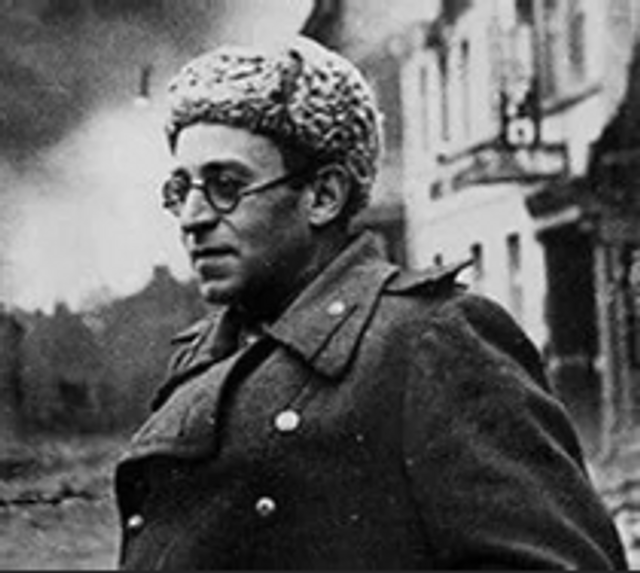
Vassili Grossman
Vassili Grossman (1905-1964) was a Russian writer and journalist who is best known for his powerful and moving novels and journalistic accounts of the Soviet Union during the 20th century. He was born in Berdychiv, a small town in Ukraine, and grew up in Kiev. He studied chemistry and worked as an engineer before turning to writing in the 1930s.
Grossman's early works, including his first novel, "Glyukauf," were heavily influenced by the Soviet Union's official literary style of socialist realism. However, as he witnessed the atrocities committed by the Soviet government during World War II and the Holocaust, Grossman became increasingly disillusioned with the regime and began to use his writing as a means of exposing its crimes and injustices.
One of Grossman's most famous works is the novel "Life and Fate," which he began writing in the early 1950s but was banned by Soviet censors and not published until after his death. The novel is set during the Battle of Stalingrad and explores the lives of a diverse cast of characters, including soldiers, scientists, and civilians, as they struggle to survive amidst the horrors of war. Grossman's portrayal of the brutality and senselessness of war, as well as his indictment of the Soviet regime, make "Life and Fate" a powerful and important work of literature.
Grossman's other notable works include "Forever Flowing," a novel about a former Soviet political prisoner trying to rebuild his life after Stalin's death, and "The Black Book," a collection of testimonies and documents about the Holocaust that Grossman gathered during his travels as a war correspondent. These works, along with his journalism and essays, have established Grossman as one of the most important writers and chroniclers of the Soviet Union.
Grossman's life and work were shaped by the tumultuous events of the 20th century, including World War II, the Holocaust, and the Soviet Union's rise and fall. In this report, we will explore the key themes and ideas in Grossman's writing and examine his legacy as a writer and journalist.
Early Life and Career
Vassili Grossman was born on December 12, 1905, in Berdychiv, a small town in what is now Ukraine. He was the youngest of three children in a Jewish family that had lived in the region for generations. Grossman's father was a chemical engineer who worked in the sugar industry, and his mother was a homemaker.
Grossman's childhood was marked by the upheavals of World War I and the Russian Revolution. His family moved to Kiev in 1919, where Grossman attended high school and later studied chemistry at the Kiev Institute of Technology. After graduating, he worked as an engineer for several years before turning to writing in the early 1930s.
Grossman's early works, including his first novel, "Glyukauf," were written in the style of socialist realism, the official literary style of the Soviet Union at the time. Socialist realism emphasized the portrayal of Soviet life in a positive light and the promotion of socialist values. However, Grossman's writing also showed an interest in the complexity of human relationships and the psychological effects of Soviet life on its citizens.
World War II and the Holocaust
When Germany invaded the Soviet Union in 1941, Grossman, like many other Soviet citizens, volunteered for the Red Army. He served as a war correspondent on the front lines, documenting the horrors of war and the atrocities committed by the Nazis. Grossman's experiences during this period had a profound impact on his writing and his worldview.
Subject Contributions
- Politics
- Exploring
- Language
- Literature
- History